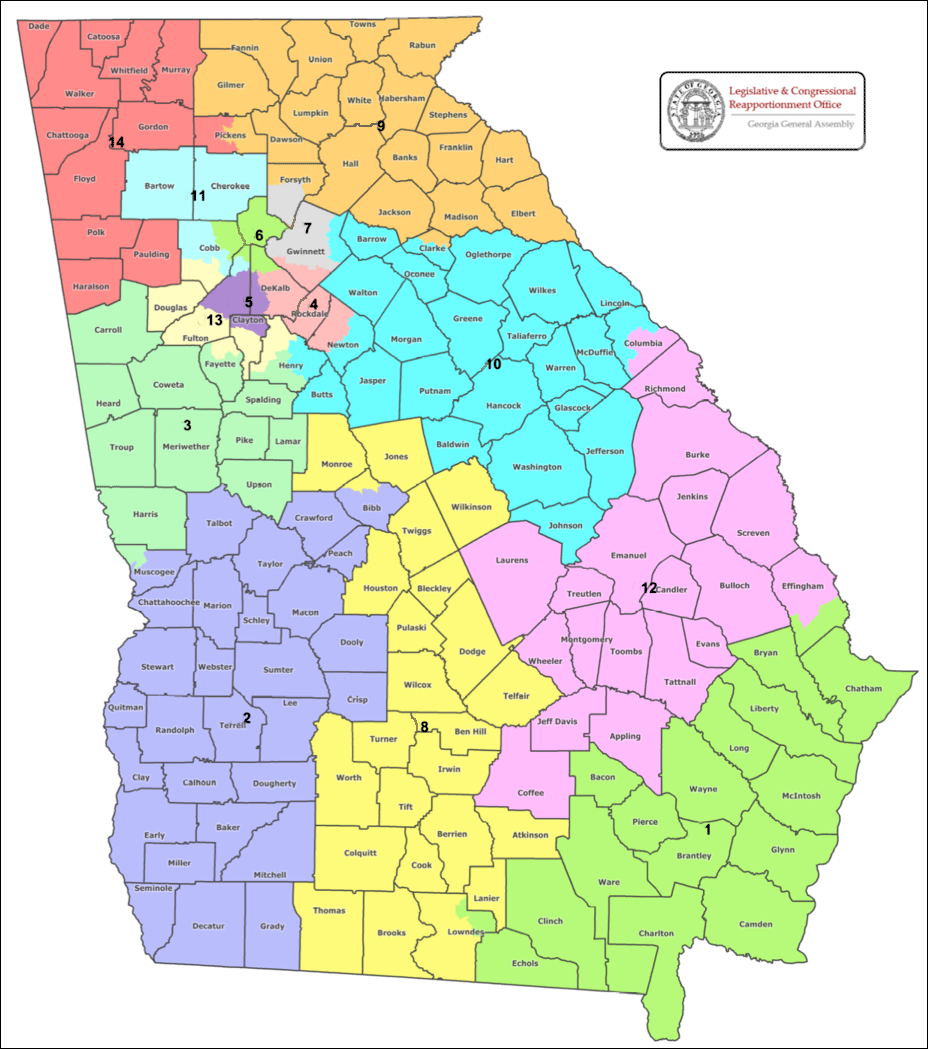By Jim Ellis
Nov. 23, 2021 — The late redistricting season continues to move along at a brisk pace, and two more states are poised to enact new congressional plans this week.
The Georgia state House, after the state Senate passed the proposed congressional map on Friday, was expected to vote on the legislation yesterday and send it to Gov. Brian Kemp (R) for final approval. The Oklahoma legislature, late last week, passed its congressional and state legislative maps in special session and sent them to Gov. Kevin Stitt (R). He is expected to sign the plans into law.
Georgia did not gain a seat in reapportionment despite significant growth in the Atlanta area. In the state’s major metroplex, the congressional districts fully contained within or touching the area counties gained almost 200,000 people dispersed within six districts. The rural CDs, particularly in the southern part of Georgia, however, all needed to gain individuals in order to meet the state population quota of 765,136 individuals per congressional district.
Oklahoma was both a long way from gaining and losing a seat, so the state remains constant with five congressional districts, now three of which come into Oklahoma County, the entity housing the state’s largest metropolis, Oklahoma City.



